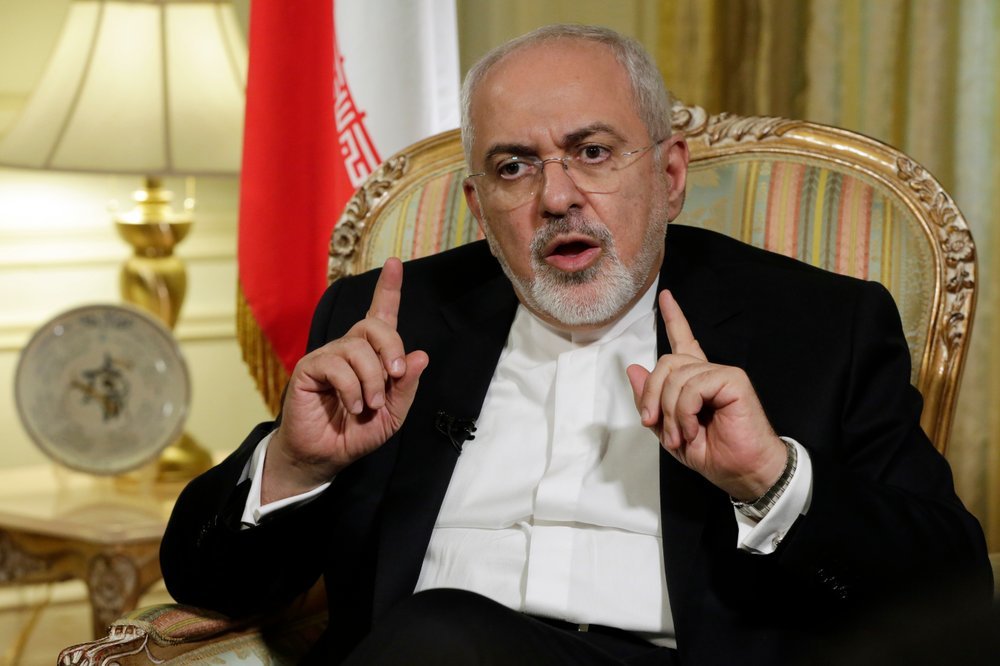Zarif: U.S. cannot stop Iranian flights, tankers

TEHRAN – The Americans cannot stop Iranian flights or block the movement of Iranian tankers at sea, Foreign Minister Mohammad Javad Zarif says.
In an interview with The New Arab published on Monday, Zarif said, “We have many ways to ensure our flights continue operating and we intend to use them. We have tried and tested them before and we will use them again.”
He said the U.S. sanctions on Iran, the second round of which were put into force on November 4, have an economic impact but “they will not affect our policies.”
“We have started feeling the effects in the past six months after the U.S. withdrew from the nuclear deal, in fact since economic actors felt Mr. Trump was going to pull out [of the nuclear deal] following his remarks about a new ‘Iran strategy’ last year,” he explained.
The foreign minister further said the Iranian people are the target of U.S. sanctions because the U.S. hopes the embargo would prompt the Iranians to put pressure on the government to change its policies, or even threaten the entire system.
On the EU’s efforts to establish trade vehicles with Iran, Zarif said, “We are aware that the European governments are still unprepared to deliver on their political pledges, concurrently, and incur an economic cost as a result, believing they can safeguard the gains without having to pay any price.”
Nevertheless, he continued, Iran is in constant contact with all of its partners in Europe, China and Russia, to find ways to confront the sanctions and mitigate their impact.
Zarif says reducing Iranian oil exports to zero ended in failure
Asked about U.S. waivers to eight nations to purchase Iranian oil, he said, “We have stated before that the U.S. cannot bring Iranian oil exports down to zero and this was proven right.”
The U.S. will not be able to bring down exports dramatically either, because Iran has the ability to export its oil and the global market needs it, Zarif asserted. He also predicted Iran will prove to everyone that it will remain strongly present in this market in the future.
‘Timing of anti-Iran accusations by European states is interesting’
In recent months, European governments have accused Iran of seeking to target dissidents abroad, but the chief Iranian diplomat thinks “The timing of these accusations is important and interesting.”
He said, “Accusing Iran of planning to bomb an opposition conference in Paris coincided with a visit by the Iranian president to Switzerland and Austria. Indeed, on 29 October, the same day the European SPV mechanism was to be declared, a suspect was arrested on charges of planning attacks against Ahvazi (Ahwazi) dissidents.”
He emphasized that Individuals who live in Denmark have claimed responsibility for the attack that took place in Ahvaz through a London-based television station and others living in France have claimed responsibility for attacks that killed people in Iran in the past.
“Therefore, it is these European countries who are abetting terrorists [and] allow [them] to reside in their territories,” Zarif said, reiterating that Iran “does not want Europe to be subjected to any security threats, and we have informed both France and Denmark that we remain prepared to cooperate and provide information on these individuals.”
Zarif to regional countries: Security cannot be bought
On regional tensions and the U.S. role in the Middle East, the foreign minister said, “Unfortunately, some countries want to purchase their security. For our part, we believe security cannot be bought.”
“We are also convinced the U.S. wants to plunder the resources of the region, by pursuing subversive policies that the countries of the region themselves pay the price for,” he further added.
Zarif also said Tehran has no problem with restoring relations with Saudi Arabia, “but this depends on Riyadh and its decisions and conduct, which it must reconsider in order to reduce regional tensions.”
“The policies against Iran, Syria, Iraq, Qatar and Yemen all originate in Saudi Arabia and not on our side,” he stated.
Zarif also voiced Iran’s willingness to resolve the conflict in Yemen, saying since the Saudi-led coalition began bombing Yemen, Iran said that military solution will not produce any results there.
Riyadh thought it could settle the issue of Yemen in a matter of weeks, but years have passed without any result, the minister remarked.
MH/PA
Leave a Comment